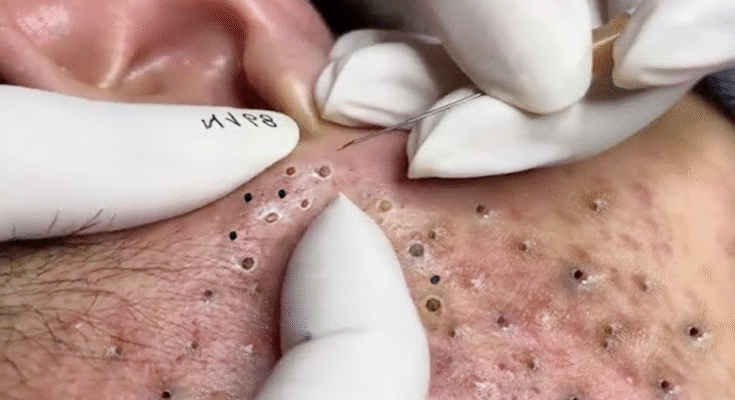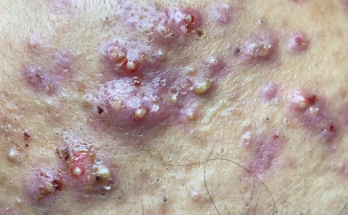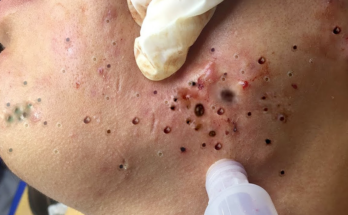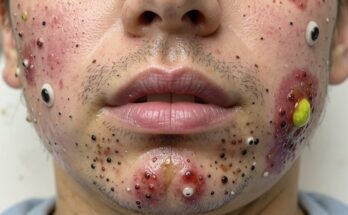Acne is one of the most common skin conditions in the world — and also one of the most frustrating. From stubborn blackheads to painful cystic pimples, acne can affect confidence, self-esteem, and overall well-being.
While dermatologists have developed many effective treatments, not everyone wants to rely on harsh chemicals, strong medications, or expensive skincare routines. For many, the path to clearer skin starts right at home — with gentle, natural ingredients that soothe, heal, and restore balance to the skin.
If you’re looking for safe, effective, and science-backed home remedies to reduce acne and promote a clear complexion — this comprehensive guide is for you.
Let’s explore the 10 best natural ways to beat acne without harsh chemicals, all backed by skin science and traditional wisdom.
1. Tea Tree Oil: Nature’s Antibacterial Powerhouse
Why It Works
Tea tree oil is one of the most well-known natural acne remedies — and for good reason. Extracted from the leaves of the Melaleuca alternifolia plant, it has powerful antimicrobial and anti-inflammatory properties that fight acne-causing bacteria (Cutibacterium acnes).
Several studies have shown that tea tree oil can be just as effective as benzoyl peroxide — one of the most common chemical acne treatments — but with fewer side effects like dryness and irritation.
How to Use
-
Dilute: Mix 1 part tea tree oil with 9 parts carrier oil (like jojoba or coconut oil).
-
Apply: Use a cotton swab to dab it directly on blemishes once or twice a day.
-
Do Not Overuse: Pure essential oils can irritate skin — always dilute.
Pro Tip: Add a few drops to your toner or moisturizer for a gentle daily antibacterial boost.
2. Aloe Vera: The Ultimate Skin Soother
Why It Works
Aloe vera is a skincare superstar. Its gel contains over 75 active compounds — including vitamins, minerals, enzymes, and amino acids — that reduce inflammation, hydrate the skin, and promote healing.
Aloe also contains salicylic acid and sulfur, both known to help with acne treatment. It’s gentle enough for sensitive skin and can be used daily.
How to Use
-
Scoop fresh gel from an aloe vera leaf.
-
Apply a thin layer to clean skin.
-
Leave it on for 15–20 minutes, then rinse or use overnight as a moisturizer.
Pro Tip: Keep your aloe gel refrigerated for a cooling, calming effect.
3. Honey and Cinnamon: Antibacterial and Healing Duo
Why It Works
Honey — particularly raw or Manuka honey — has powerful antibacterial and healing properties. It draws moisture into the skin and speeds up wound healing. Cinnamon, meanwhile, increases circulation and has natural antimicrobial effects.
Together, they form a potent anti-acne mask that kills bacteria and reduces inflammation.
How to Use
-
Mix 2 tablespoons raw honey with 1 teaspoon cinnamon powder.
-
Apply evenly to clean skin.
-
Leave for 10–15 minutes and rinse with lukewarm water.
Pro Tip: Use once or twice a week. Avoid if your skin is sensitive to essential oils or spice ingredients.
4. Green Tea: Powerful Antioxidant and Oil Regulator
Why It Works
Green tea is packed with antioxidants (catechins), particularly EGCG (epigallocatechin gallate), which reduces sebum production, fights bacterial growth, and soothes inflammation.
When used topically, green tea can visibly reduce redness, oiliness, and breakouts over time.
How to Use
As a toner:
-
Brew a cup of green tea and let it cool.
-
Apply with a cotton pad or spray bottle.
-
Store in the fridge and use twice daily.
As a mask:
-
Mix cooled green tea leaves with honey or yogurt.
-
Apply for 15 minutes and rinse.
Pro Tip: Drink 1–2 cups of green tea daily for an internal antioxidant boost.
5. Apple Cider Vinegar: Natural Toner and pH Balancer
Why It Works
Apple cider vinegar (ACV) is rich in acetic acid, citric acid, and malic acid, which act as natural exfoliants. It kills acne-causing bacteria, balances the skin’s pH, and helps fade dark spots.
However, ACV is acidic — it must be diluted to prevent irritation.
How to Use
-
Mix 1 part ACV with 3 parts water (add more water for sensitive skin).
-
Apply using a cotton pad as a toner.
-
Leave for 5–10 minutes, then rinse and moisturize.
Pro Tip: Use only a few times per week. Overuse can disrupt your skin barrier.
6. Turmeric: Anti-Inflammatory and Brightening Wonder
Why It Works
Turmeric has been used for centuries in Ayurvedic skincare for its healing and brightening effects. Its active compound curcumin has potent anti-inflammatory and antibacterial properties that target acne-causing bacteria and calm redness.
How to Use
-
Mix 1 teaspoon turmeric powder, 2 teaspoons honey, and 1 teaspoon yogurt or aloe vera gel.
-
Apply the paste as a mask for 10–15 minutes.
-
Rinse thoroughly and follow with a gentle moisturizer.
Pro Tip: Turmeric can temporarily stain skin or fabrics — use sparingly and rinse well.
7. Witch Hazel: Nature’s Gentle Astringent
Why It Works
Witch hazel, derived from the bark and leaves of the Hamamelis virginiana plant, acts as a natural astringent — tightening pores, reducing oil, and calming irritation. It also has mild antibacterial properties.
How to Use
-
Apply pure alcohol-free witch hazel to a cotton pad.
-
Sweep gently across clean skin, focusing on oily areas.
-
Use once daily after cleansing.
Pro Tip: Look for formulations without added alcohol to prevent dryness.
8. Oatmeal: Calming and Detoxifying
Why It Works
Oatmeal isn’t just breakfast food — it’s a soothing skin treatment that helps balance oil, exfoliate dead cells, and calm inflammation. It’s rich in beta-glucans and saponins, which cleanse and protect the skin.
How to Use
-
Cook plain oats with water (no milk or sugar).
-
Let them cool, then apply as a thick paste.
-
Leave for 15–20 minutes, then rinse with lukewarm water.
You can also mix ground oats with honey or yogurt for a gentle exfoliating mask.
Pro Tip: Oatmeal baths can soothe body acne and irritated skin.
9. Lemon and Honey: Natural Brightener (Use With Caution)
Why It Works
Lemon juice contains citric acid, a natural alpha hydroxy acid (AHA) that exfoliates dead skin and lightens dark spots. When mixed with honey, it becomes more hydrating and less harsh.
However, lemon is acidic and can irritate sensitive skin or make it more prone to sunburn, so always dilute and patch-test.
How to Use
-
Mix 1 teaspoon lemon juice with 1 tablespoon honey.
-
Apply for 5–10 minutes and rinse thoroughly.
-
Follow with sunscreen if used during the day.
Pro Tip: Use only at night or on cloudy days. Always apply SPF the next morning.
10. Ice Therapy: Simple Yet Effective
Why It Works
Cold compresses and ice cubes may not sound glamorous, but they’re one of the simplest, most effective remedies for swollen, inflamed pimples.
Cold constricts blood vessels, reducing redness and swelling instantly.
How to Use
-
Wrap an ice cube in a clean cotton cloth.
-
Hold on the affected area for 30–60 seconds.
-
Repeat 2–3 times daily as needed.
Pro Tip: Try frozen green tea or aloe vera cubes for extra anti-inflammatory power.
11. Bonus Remedies That Support Clear Skin Naturally
Apple and Honey Mask
The malic acid in apples acts as a gentle exfoliant. Mix grated apple with honey for a skin-brightening mask.
Coconut Oil (for Dry Skin Types)
Rich in lauric acid, coconut oil has antibacterial properties — but it can clog pores for oily skin types. Use only on dry or combination skin.
Neem Leaves
Boil neem leaves in water, strain, and use as a natural toner. Neem is antibacterial and helps prevent new breakouts.
12. Daily Habits to Support Natural Acne Healing
These natural remedies work best when paired with healthy skin habits.
12.1 Keep Your Skin Clean — But Don’t Overwash
Cleanse gently twice daily with mild soap or natural cleansers like honey or oatmeal. Overwashing can strip oils and trigger more sebum.
12.2 Maintain a Healthy Diet
-
Avoid processed sugar and refined carbs.
-
Eat antioxidant-rich fruits and vegetables.
-
Stay hydrated — water helps flush toxins.
12.3 Manage Stress
Meditation, yoga, or simply breathing deeply can lower cortisol levels — reducing inflammation and hormonal breakouts.
12.4 Change Pillowcases Regularly
Oil and bacteria accumulate on fabrics and transfer to your skin. Change pillowcases every 2–3 days.
12.5 Sleep Well
Your body and skin repair themselves during sleep. Aim for 7–9 hours per night.
13. Natural Acne-Fighting Ingredients You Can Add to Your Routine
| Ingredient | Function | Where to Find It |
|---|---|---|
| Tea Tree Oil | Antibacterial | Spot treatment |
| Aloe Vera | Soothing & healing | Gel or moisturizer |
| Green Tea | Antioxidant & anti-inflammatory | Toner or mask |
| Honey | Antibacterial & humectant | Cleanser or mask |
| Turmeric | Anti-inflammatory & brightening | Mask or cream |
| Witch Hazel | Astringent & oil control | Toner |
| Oatmeal | Calming & detoxifying | Mask or cleanser |
| Apple Cider Vinegar | pH balance & exfoliation | Toner (diluted) |
| Lemon | Brightening (use with care) | Spot treatment |
| Coconut Oil | Moisturizing (for dry skin) | Natural emollient |
14. Important Tips for Using Natural Remedies Safely
-
Always patch-test new ingredients.
Natural doesn’t always mean non-irritating — essential oils, acids, and raw ingredients can still cause sensitivity. -
Be patient.
Natural remedies take time. Expect noticeable results after 4–6 weeks of consistent use. -
Avoid mixing too many actives.
For example, don’t use lemon juice and ACV on the same day — it may cause irritation. -
Use sunscreen daily.
Many natural treatments make your skin more sensitive to sunlight. -
Know when to seek medical help.
If acne is severe or causing scarring, combine natural care with professional dermatological guidance.
15. The Holistic Approach: Heal From Within
Clear skin doesn’t come from topical remedies alone. Your skin reflects your inner health — especially your gut, hormones, and stress levels.
5 Holistic Habits to Pair With Natural Remedies:
-
Eat whole, unprocessed foods — focus on anti-inflammatory meals.
-
Stay hydrated — water and herbal teas support detoxification.
-
Sleep deeply — your skin renews itself overnight.
-
Exercise regularly — improves circulation and hormone balance.
-
Practice self-care — mental health and skin health are connected.
16. When to See a Dermatologist
Even the most powerful natural remedies can’t solve all cases. Seek medical advice if you have:
-
Cystic or nodular acne
-
Painful, deep breakouts
-
Scarring or pigmentation issues
-
Acne that worsens despite treatment
Dermatologists can integrate natural remedies with medical-grade solutions for comprehensive care.
17. The Bottom Line: Nature Knows Best
Natural acne care isn’t about replacing science — it’s about complementing it.
Mother Nature offers incredible ingredients that can:
-
Kill acne-causing bacteria
-
Calm inflammation
-
Restore balance
-
Heal scars
-
Strengthen the skin barrier
Consistency is key. Gentle, natural remedies work slowly but effectively, improving not just your skin’s appearance but also its long-term health.



